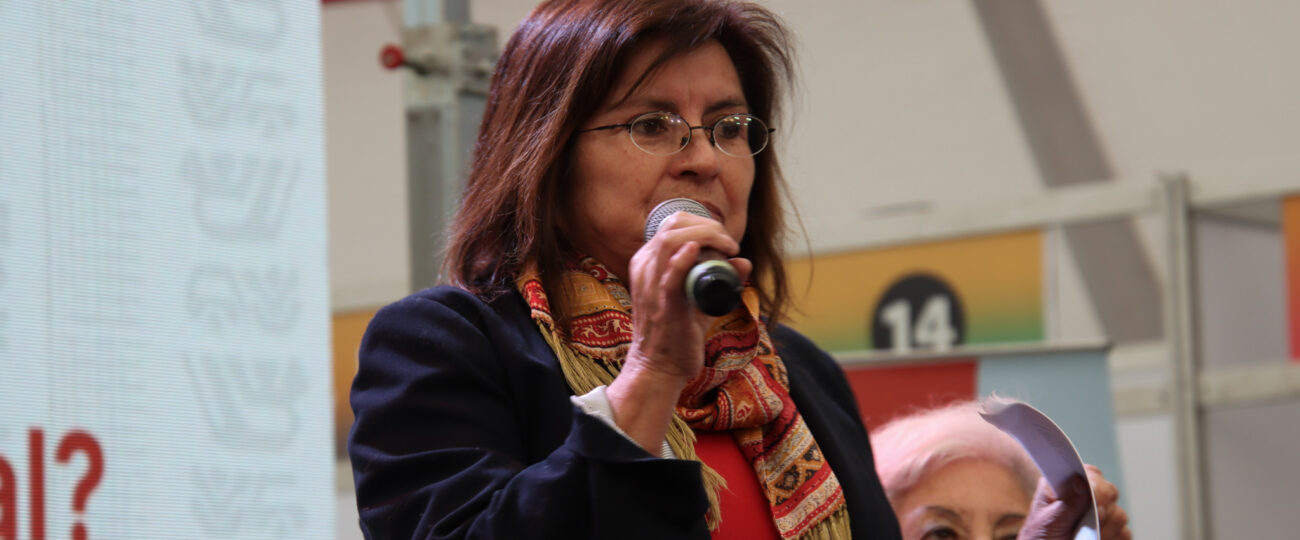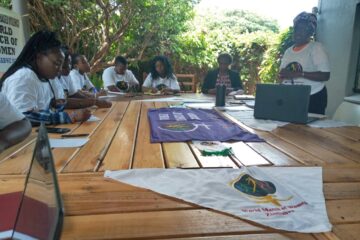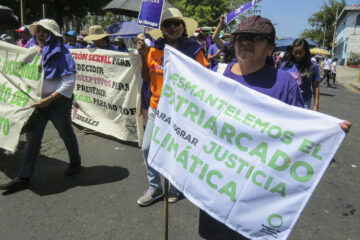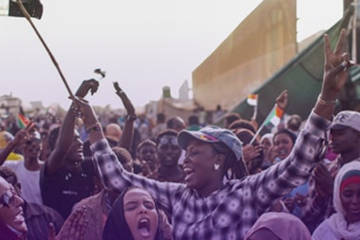Creating conditions for a transition towards socialism is and has been ongoing and challenging. Still, I will draw a very brief timeline here, to account for some of the most relevant milestones at the beginning of this century, in this region that is in full swing. But, before this, I will go back to some unavoidable events from the last century, because nothing can be explained regarding this region without mentioning that, at the end of the 1950s, Cuba turned on a light that still shines on the prospects for change on the continent and in the world. Its proposal remains in force and its experience is a testimony to the historical possibility of leaving capitalism and its crises behind, as well as the feasibility of building a large-scale socialist project.
At the beginning of the 1970s, the Unidad Popular [Popular Unity] government in Chile made it possible to visualize the probability of coming to power peacefully and to postulate structural changes. At the same time, it showed that this is a broad dispute, since the setback faced by Salvador Allende’s socialist building process not only affected Chile, but the entire world. The 1973 coup inaugurated a laboratory of neoliberalism, an exclusionary model that defined the rules of the game for the whole market as an essential aspiration for the repositioning of capitalism, which persists on the world stage until today.
At the end of the same decade, in Nicaragua, after the dictator Anastasio Somoza resigned, the Frente Sandinista de Liberación Nacional (FSLN) [Sandinista National Liberation Front] came to power in 1979 with an agenda of structural changes and redistribution. These were years in which paths of struggle for socialism were opened in Central America. In the 1970s, 1980s and until the end of the 1990s, heroic battles took place in Guatemala and El Salvador; they were heroic not only because they occurred under imbalanced conditions, but because they raised aspirations for victory and triggered a process that led, in the 21st century, to the coming to power of the Frente Farabundo Martí para la Liberación Nacional [Farabundo Martí National Liberation Front] in El Salvador, which is also a contribution to the procedural transformations that continue to be at the center of dispute in the region.
In the 1980s, in Haiti, the Lavalas Revolution (“avalanche” in Créole) removed Jean-Claude Duvalier from power and thus defeated a dictatorship that had passed on from father to son for over 25 years. Jean Bertrand Aristide’s government proposed a significant set of changes in a very complex context, including sovereignty and pacification of the country. Likewise, in those Caribbean lands of great projects for independence, Grenada raised thoughts of socialism, with the victory in 1979 of the New Jewel Movement led by Maurice Bishop. There emerged socioeconomic changes that included women’s equality and a reorganization of the State that was prevented by a coup d’état and the assassination of Bishop in 1983.
In the 1990s, with increased globalization, the peasant movement presented a critical stance against huge commercialization. The Coordinadora Latinoamericana de Organizaciones del Campo (CLOC) [Latin American Coordinator of Rural Organizations] and Vía Campesina proposed an agenda of resistance to attempts to place commercial rights above the rights of people, which was being forged within the scope of the World Trade Organization (WTO). With the motto of “keeping agriculture out of the WTO”, they were in Hong Kong, Cancún and everywhere the WTO came together. They expressed their disagreement with the interference of transnational corporations and financial capital in the processes of food production and distribution, which not only resulted in the disappearance of rural areas as a social and cultural entity, but also deepened inequalities and hunger. In return, they proposed the concept of food sovereignty, which is an endogenous and sustainable solution.
Grassroots and social movements played a leading role in proposing alternatives to neoliberalism in the late 1990s and early 2000s. The new century dawned with feminist and internationalist mobilization against poverty and violence raised by the World March of Women, which also provided ideas for dismantling patriarchal structures as part of achieving social change.
In 2001, Brazil hosted the World Social Forum, initially as an alternative to the World Economic Forum in Davos. With the motto “Another world is possible”, it attracted people from multiple sectors and had open debates. It quickly became a global laboratory for seeking alternatives. In turn, the Social Forum of the Americas, based in Ecuador, following the context of changes that the region was experiencing, had great relevance as a space for debates, conversations and even strategic initiatives.
In those same years, there was significant popular and social cohesion around resistance to neoliberalism, especially against free trade and against the hemispheric project that the United States proposed for the region: the Free Trade Area of the Americas (FTAA), whose objective was economic restructuring under its leadership and control. This resistance resulted in a historic victory, which marked the visibility of alternatives and guidelines for the construction of transition processes to socialism that became evident in the first three decades of the 21st century.
But before addressing the content of these proposals for transition, it is inevitable to mention the Caracazo of 1989, which constituted a pioneering mobilization against neoliberalism. The Venezuelan people expressed in the streets that the socioeconomic exclusion caused by neoliberalism was unacceptable for the people and lit a fire that, in the late 1990s, illuminated ideas to outline socialism for the 21st century.
The Bolivarian Revolution that began in 1998 proposed peaceful changes and produced significant concepts: constitutional revolutions, participatory and “protagonistic” democracy, rebuilding the State, feminist socialism, and the dialogue between the local and the construction of a multicentric and pluri-polar world, among others.
The methodology of constitutional drafting with the participation of the people to rebuild the State was something that inspired the processes of change in other countries. In the second five-year period of the 21st century, Bolivia, hand in hand with the Movimiento al Socialismo (MAS) [Movement for Socialism] and the leadership of Evo Morales, undertook its democratic and cultural revolution from 2006 onwards, and reformulated itself constitutionally as a pluri-national State. In 2007, the Citizen Revolution process emerged in Ecuador, which produced the Constitución del Buen Vivir (2008) [Constitution of Good Living], proposing far-reaching changes.
In Brazil, the Partido dos Trabalhadores [Workers’ Party] led Lula to power in 2003: a progressive view emerged, a redistributive alternative, for changes for Brazil and a geopolitical proposal for mobilizing the South, with great historical perspective. Also in 2003, in Argentina, Nestor Kirchner, from the Frente para la Victoria [Front for Victory], came to power, introducing significant socioeconomic and political changes in his country and making historical contributions to the regional integration process. Similar processes were registered in the rise to power of Frente Amplio [Broad Front] with Tabaré Vazquez (2005) and later Pepe Mujica (2010) in Uruguay, while in 2008 Paraguay joined the line of countries for change with Fernando Lugo, of Frente Guasú [Guasú Front]. In Honduras, Manuel Zelaya (2006), coming from a progressive wing of the liberal party, joined the dynamics of change.
In this brief and incomplete overview of a heterogeneous process, it is essential to highlight the centrality of regional integration proposals, which emerged after the FTAA became unfeasible in 2005. Chronologically, the Alternativa Bolivariana para los Pueblos de Nuestra América (Alba) [Bolivarian Alternative for the Peoples of Our America] emerged, the result of the people’s resistance and the encounter between two giants: Fidel and Chávez, who brought together the experience of internationalism and the perspective of humanitarianism postulated by the Cuban Revolution with the Bolivarian geopolitical view of the Great Homeland, to raise the idea of an integration between Latin American and the Caribbean as the great regional historical project of the 21st century.
The Alternativa, now Alianza Bolivariana para los Pueblos de Nuestramérica – Tratado de Comercio de los Pueblos (Alba-TCP) [Bolivarian Alliance for the Peoples of Our America – Peoples’ Trade Treaty], It is the most relevant anti-systemic proposal that has been put forward in this moment of history. In addition to the great projection of sharing economic, political, cultural and other perspectives, it refers to the joint transformation of the region, which could create conditions for a transition to socialism. Its strategic agenda includes productive approaches and exchange initiatives that can generate processes of disconnection from capitalism, interrelated in turn with a geopolitical perspective of the South and a multicentric and pluri-polar world.
Similarly, the Unión de Naciones del Sur (Unasul, 2004) [Union of South American Nations] is a South American sovereignty project, whose perspective of endogenous articulation, in addition to regional sustainability, could result in the creation of a pole of geopolitical articulation in the South, with the ability to participate in the construction of a multipolar world. In turn, the Comunidad de Estados Latinoamericanos y Caribeños (Celac) [Community of Latin American and Caribbean States] was created as a mechanism for political dialogue between the thirty-three countries in the region, to represent the region in its relationship with other blocs and promote exchanges and development projects. Among Celac’s first achievements is the declaration of the region as a zone of peace. It holds summits and interregional plans with China, the European Union and others.
These are some components of an integrative architecture that is a possibility for the future, amid political diversity and different economic projects. It is a proposal that dialogues with the creation of coordination offices or joint projects in the global South, as is the case with BRICS+ and others.
The sovereign regional integration proposed in this scenario has the singularity of standing as a historical project, which is why it is different from the blocs that are articulated only around free trade.
Irene León
The perspective of sovereignty and diversity includes dynamics that result from processes of socialist change and a move away from neoliberalism and capitalism. Along these lines, in the second decade of the 21st century, several countries withdrew from Ciadi (a World Bank organization), challenged the international arbitration offices of corporate power, presented initiatives for a regional financial architecture, and conceived sovereign security and defense bodies, science and technology and cultural initiatives of great projection.
In Latin America and the Caribbean in the 21st century, ideas were sown to establish the region as an anti-capitalist power, with other ways of producing and reproducing life, placing life at the center, displacing the historical bias of organizing everything based on the reproduction of capital, which has distorted human coexistence for centuries.
Irene León
Putting life at the center is the most anti-capitalist and transitional to socialism response proposed in our times. It is a perspective of substantive changes, arising from a conjunction between feminist approaches and economics for life, and other sustainability perspectives that are currently unavoidable.
In this third decade of the 21st century, in a context that is also affected by the conservative backlash, marked by the emergence of far-right networks, interrelated with the factual powers of global capitalism that fight for systemic recomposition, the Latin American and Caribbean region goes through an important dispute over society’s guidelines, thanks to an accumulation of transformative perspectives and a set of experiences with great possibilities of projection for a future of changes.
Even in a high-intensity context like the current one, the region has enough elements to create conditions to dispute the meanings of the future. The strategy to achieve this was stated by Chávez: unity, struggle, battle and victory.
____
Irene León is an Ecuadorian sociologist, part of the Red de Intelectuales y Artistas en Defensa de la Humanidad. This text is an edited version of her panel at the regional stage of the Dilemmas of Humanity conference, which took place in Santiago, Chile, in September 2023.




